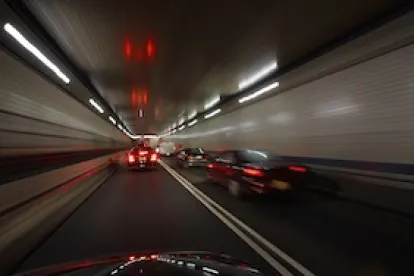In yet another decision concerning gig economy businesses, the New York Supreme Court, Appellate Division, Third Judicial Department upheld a decision of the Unemployment Insurance Appeal Board (the “Board”), which held that Uber exercised sufficient control over its drivers to qualify as their employer. Accordingly, it found Uber to be liable for unemployment insurance contributions with respect to the drivers at issue.
Brief Procedural Background
Claimant and similarly situated drivers (“Claimants”) sought unemployment insurance benefits when they ceased driving for Uber. The New York Department of Labor (“DOL”) issued initial determinations, finding that the Claimants were employees of Uber and that Uber was liable for additional unemployment insurance contributions based on monies paid to Claimants. Uber objected and, following a hearing, an Administrative Law Judge upheld the initial determinations. The Board affirmed and Uber appealed. On December 17, 2020, the Third Department affirmed the underlying Board decision, finding that sufficient evidence in the record supported the Board’s decision.
The Third Department’s Holding
The Appellate Division analyzed and relied upon several facts in the record to conclude that substantial evidence existed to support the Board’s finding that Uber exercised sufficient control over Claimants to establish an employment relationship. Matter of Lowry, No. 530395, 2020 WL 7390888 (App. Div. 3d Dept. Dec. 17, 2020). While no one factor is determinative in analyzing whether an employment relationship exists within the meaning of unemployment insurance law, the relevant inquiry is generally “whether the purported employer exercised control over the results produced or the means used to achieve those results.” Id. (quoting Matter of Empire State Towing & Recovery Assn., Inc. [Commissioner of Labor], 15 N.Y. 3d 433, 437 [2010] [internal quotation marks, brackets and citations omitted]).
In this case, the Court held that facts existed to establish that “Uber controls the drivers’ access to their customers, calculates and collects the fares and sets the drivers’ rate of compensation […] provides a navigation system, tracks the drivers’ location on the app throughout the trip […] controls the vehicles [and] precludes certain driver behavior.” Id.
What the Future Holds for Gig Economy Drivers
While the Appellate Division, Third Department’s decision is limited to upstate New York (distinct from New York City), it may foreshadow future decisions involving gig economy workers, particularly with respect to rideshare companies. For example, on the same day the Court decided Matter of Lowry, the Third Department held that US Pack Logistics, LLC, a delivery service company, exercised sufficient control over its employee drivers based on facts demonstrating that they were assigned specific workdays and hours by US Pack’s operations manager, were issued an identification badge bearing US Pack’s name, and were required to sit in the client’s parking lot during set hours. Matter of Thomas, No. 530311, 2020 WL 7390959 (App. Div. 3d Dept. Dec. 17, 2020). In addition, Islam, et al v. Cuomo, et al, No. 1:20-cv-02328, 2020 WL 4336393 (S.D.N.Y. July 28, 2020), a case pending in the United States District Court for the Eastern District of New York, involves several New York drivers for various app-based ridesharing companies who filed for unemployment insurance benefits in March 2020. Although the New York State DOL denied unemployment insurance benefits to many of the drivers due to lack of wage and earnings data from the various companies, the federal court granted the drivers’ motion for a preliminary injunction, ordering New York to pay unemployment insurance benefits to Uber drivers and to resolve any outstanding claims within 45 days.
Courts and state labor agencies across the United States have been struggling with similar worker classification issues for gig economy workers. For example, California sued Uber in May, seeking an injunction forcing the companies to reclassify their drivers as employees rather than independent contractors under AB-5. Although the courts granted California’s requested injunction, California voters overturned it just a few weeks later when they passed Proposition 22, allowing ridesharing apps to maintain their drivers as independent contractors. People of the State of California v. Uber Technologies, Inc., No. CGC-20-584402 (Cal Super. Ct. Sf. Cnty. Aug. 10, 2015). On November 5, 2020, the United States Court of Appeals for the Third Circuit vacated the trial court’s summary judgment decision ruling in favor of UberBLACK on the question of whether drivers are employees or independent contractors within the meaning of the Fair Labor Standards Act (“FLSA”), 29 U.S.C. §§ 201– 219, and similar Pennsylvania state laws. Razak v. Uber Technologies, Inc., 951 F.3d 137 (3d. Cir. 2020). That case remains pending.
While the Matter of Lowry decision represents a small victory for rideshare drivers in upstate New York, the classification battle is not ending any time soon. In light of this decision and the passage of Proposition 22 in California, we expect classification issues to remain at the forefront of employment and labor law concerns, particularly in the gig economy.
Employers in New York should continue to take steps to ensure proper classification of their workers and remember that the ultimate inquiry in determining whether a worker is an employee or an independent contractor comes down to who has the right to control or direct the results of the work, rather than how the parties define the relationship. We will continue to monitor these decisions and provide updates as more information becomes available. Should you have any questions concerning these issues, employers should also consult counsel for assistance.




 />i
/>i

